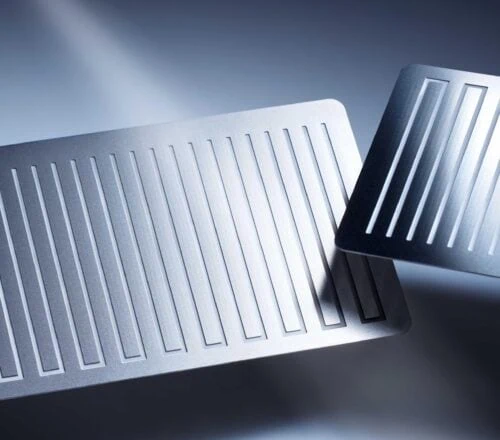Capable of Intricate Patterns and Geometries
Photochemical machining (PCM), also known as photochemical etching, is a highly precise and versatile subtractive manufacturing process used to fabricate complex metal components. It employs photoresist and chemical etching techniques to produce intricate patterns and geometries with tight tolerances and no mechanical stress on the material. In the realm of power generation and storage systems—ranging from fuel cells to batteries—PCM offers significant performance enhancements by enabling the creation of components that are lighter, more efficient, and more durable.
High-Precision Parts with Micro-Scale Features
One of the most critical contributions of PCM to power generation and storage lies in its ability to manufacture high-precision metal parts with micro-scale features. For fuel cells, particularly proton exchange membrane (PEM) and solid oxide types, PCM is instrumental in producing bipolar plates. These plates are responsible for distributing gases, conducting electricity, and managing water and heat within the cell. Using PCM, manufacturers can produce bipolar plates with highly uniform and intricate flow field patterns. These precise patterns optimize gas flow and thermal distribution, directly improving the efficiency and longevity of the fuel cell.
Moreover, PCM’s capability to create thin, lightweight components from high-performance metals such as stainless steel and nickel alloys reduces the overall weight and size of power systems without compromising structural integrity. This is especially crucial in applications like electric vehicles (EVs) and aerospace systems, where weight reduction translates to enhanced energy efficiency and extended operational range. PCM also supports the fabrication of components with sharp internal corners and fine slots, features that would be difficult or impossible to produce.
Current Collectors and Mesh Structures for Batteries
In battery technologies, especially in lithium-ion and emerging solid-state batteries, PCM is used to produce intricate current collectors and mesh structures. These components must provide excellent conductivity while maintaining a minimal profile to maximize the volume available for active material. PCM enables the production of ultra-thin, corrosion-resistant metal meshes with complex geometries that improve ion transport and current distribution. Enhanced current collection contributes to better charge/discharge rates, longer cycle life, and overall improved battery performance.
Another notable advantage of PCM in these systems is its burr-free, stress-free processing. Traditional machining methods often introduce mechanical stress or thermal distortion into the components, which can compromise their mechanical and electrochemical properties. PCM, by contrast, uses no mechanical force or high heat, thus preserving the integrity of the material. This is particularly valuable in components that must maintain high conductivity and resistance to fatigue over thousands of charge-discharge or power cycles.
Rapid Prototyping and Cost-Effective Production
Additionally, PCM allows for rapid prototyping and cost-effective production runs, from small batches to large-scale manufacturing. This agility is vital for innovation in energy systems, where rapid iteration and customization are often needed to optimize performance for specific applications. It also supports design flexibility, allowing engineers to quickly test new architectures and geometries that might otherwise be cost-prohibitive with traditional tooling.
Eco-Friendly
Environmental sustainability is another area where photochemical machining adds value. The process generates minimal waste and does not rely on lubricants or cutting oils, making it more environmentally friendly. In power generation and storage, where lifecycle environmental impact is a growing concern, PCM contributes to greener manufacturing processes.
Improved Performance and Efficiency
In summary, photochemical machining significantly enhances the performance and efficiency of components used in fuel cells and batteries. Its ability to produce lightweight, precise, and complex metal parts with no mechanical stress enables the design of more efficient, durable, and compact energy systems. As the demand for high-performance, sustainable power generation and storage technologies grows, PCM is poised to play an increasingly pivotal role in advancing the capabilities of next-generation energy solutions.
For more information:
Request for Quote
"*" indicates required fields


